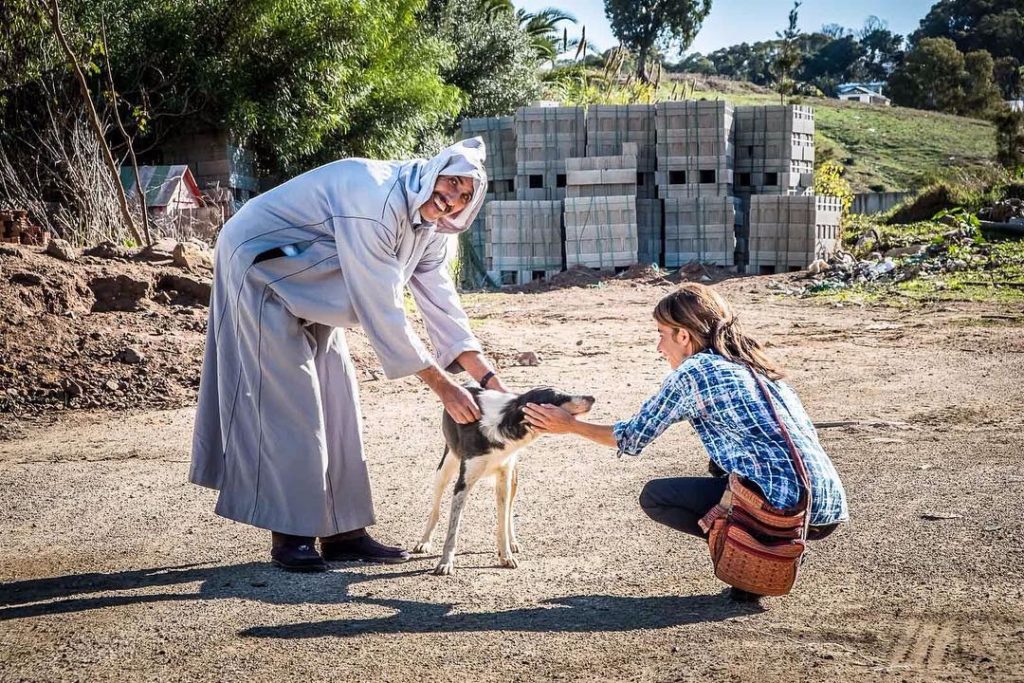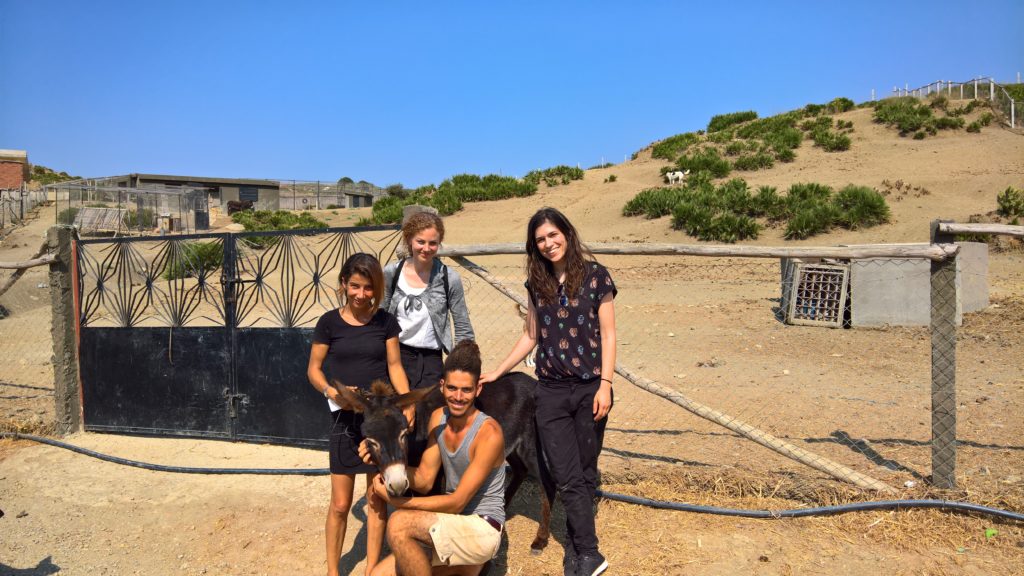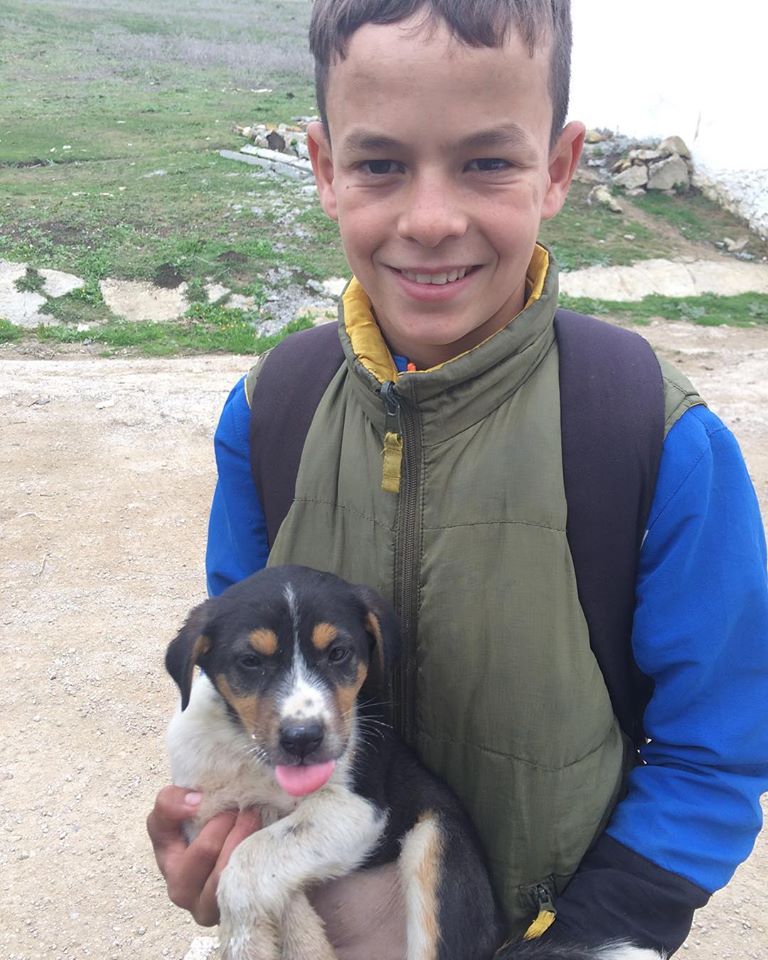El Gobierno local en Marruecos usará medios que tienen en cuenta el bienestar de los animales para poder controlar la población de animales callejeros
Al partir de ahora, las autoridades del municipio de Tánger, en el norte de Marruecos, invertirán en formas éticas y efectivas para poder hacer frente ante el crecimiento de la población de perros callejeros en este municipio. Se trata de un paquete integral, que incluye la vacunación, esterilización e identificación de estos animales. El municipio colaborará con la organización local y refugió para animales callejeros Sanctuaire de la Faune de Tanger (SFT). La organización recibirá un apoyo financiero de aproximadamente 27 mil euros.

Esta colaboración, que se aprobó de forma unánime, tiene como objetivo asegurar la seguridad y la salud de los animales, según el municipio de Tánger. El alcalde de Tánger, Mohamed Bachir Abdellaoui, reitera que la idea detrás de esta iniciativa es tener una solución no cruel para resolver el problema de la sobrepoblación de animales callejeros en Tánger. De tal forma, el municipio muestra que toma en serio sus obligaciones en cuanto a la promoción de los derechos de los animales.
Se estima que en Marruecos viven unos 2 millones de perros callejeros. Muchas veces son considerados peligrosos, por lo cual son maltratados y matados. En este momento, Tánger es el segundo municipio, después de Agadir, que facilita el enfoque que toma en cuenta el bienestar de los animales para solucionar el problema de las poblaciones crecientes de animales vagabundos.
La idea es que el SFT esterilice a los animales callejeros en el municipio de Tánger y que ofrezca sus servicios veterinarios en colaboración con la Autoridad Nacional Marroquí de la Seguridad de Alimentos (ANMSA) y el Servicio de Salud Municipal para llevar a cabo las campañas de vacunación contra la rabia. Una vez que se hayan esterilizados los animales, se les da una marca auricular u otra forma de identificación, para que los ciudadanos y las autoridades sepan que estos animales ya no representan ningún peligro. El municipio se compromete, además del apoyo financiero, a que ya no matará a los animales que han sido identificados por el SFT.

Visita el Partido por los Animales al SFT
El año pasado, el senador del Partido por los Animales, Christine Teunissen, visitó al SFT en Tánger. Teunissen quedó bastante impresionada por el trabajo de la organización y de su fundadora Salima (Sally) Kadaoui. Durante años Kadaoui se ha dedicado al bienestar de los animales callejeros de manera desinteresada con su organización. Hace unos años empezó con un programa llamada ‘Hayat’. Hayat significa ‘Preservación’ de la vida y el programa está enfocado en la atención médica, vacunación, esterilización e identificación de animales vagabundos. El proyecto Hayat es particularmente interesante por el hecho de que brinda información a las comunidades locales. El SFT muestra a los habitantes locales que los perros callejeros pueden ser buenos protectores del vecindario y además buenos amigos. Asimismo, el SFT ayuda a familias de pocos recursos a cuidar mejor a sus animales, dándoles alimentos y atención médica. Kadaoui: “Queremos difundir la compasión y el amor. Cada animal merece una vida digna y respeto. Informamos y promovemos la participación de la comunidad local, porque es un asunto que nos importa a todos. Solamente trabajando juntos llegaremos más lejos.”

La amistad entre la población local y los perros callejeros
Hasta ahora este trabajo se ha podido realizar mediante donaciones de todo el mundo y el esfuerzo de los voluntarios. Kadaoui está contenta que el gobierno local también ha reconocido la necesidad de un enfoque que toma en cuenta el bienestar de los animales. “Son noticias fantásticas para los animales y los humanos igual.” Pero todavía necesitamos más donaciones porque no estamos seguros cuando recibiremos los nuevos subsidios y los animales callejeros requieren atención pronto, antes de que los matan.”
Kadaoui mantiene a todos al tanto del trabajo del SFT a través de Facebook y su página web.
The council of the municipality of Tangier in the north of Morocco will start investing in humane and effective means to control the municipality’s stray animal population. This concerns an integral package, including vaccination, neutering and identification. Tangier will be cooperating with local organisation and sanctuary for stray animals “Sanctuaire de la faune de Tanger” (SFT). This year, SFT will receive a financial support of 27,000 euros.

Founder of SFT working with local communities
This cooperation was unanimously approved and, according to the municipality of Tangier, aims to ensure the health and safety of the citizens. The Tangier mayor Mohamed Bachir Abdellaoui stresses that the initiative is also intended as a humane solution to the large stray animal population in Tangier. In this way, the municipality demonstrates that it takes its obligations with respect to the protection of animal rights seriously. It is estimated that there are currently 2 million stray dogs living in Morocco. Often, they are considered a threat, abused or killed. After Agadir, Tangier is the second municipality in Morocco making funds available for a humane approach to the animal stray population.
SFT intends to neuter and provide medical care to stray animals in the municipality of Tangier, and work with the Moroccan National Food Security Authority (ONSSA) and the local health service to launch vaccination campaigns against rabies. Animals that have been vaccinated and neutered are identified, e.g. by an ear tag, so that citizens and authorities know these animals do not constitute a danger. In addition to its financial support, the municipality has also promised not to kill any stray animals identified by SFT.

Party for the Animals’ visit to SFT
Last year, Party for the Animals’ senator Christine Teunissen visited Tangier and SFT, and she was very impressed with the work done by the organisation as well as with its founder, Salima (Sally) Kadaoui. For years, Kadaoui has been selflessly dedicating herself and her organisation to the welfare of stray animals in Tangier. A few years back, she started her so-called “Hayat” programme. Hayat means (preservation of) ’life’ and the programme involves the medical treatment, vaccination, neutering and identification of strays.
What makes the Hayat project even more interesting is that it involves and educates local communities. SFT uses Hayat to show local citizens that stray dogs can be great neighbourhood watch dogs and friends. SFT also assists poor families in taking care of their animals, by providing them with food and medical care. Kadaoui: “Our wish is to spread love and compassion. Every creature deserves life and respect. We educate and involve the local community, because this concerns us all. The only way to make progress is by working together.”

Local citizens befriend stray dogs
Until now, this work has been possible mainly by donations from around the world and by the organisation’s volunteers. Kadaoui is pleased that the local government now understands the value of a humane approach. “This is marvellous news for both animals and people. All our supporters and donors are heroes, and we are very happy with the local government’s stated support. However, we still need more donations, as it is uncertain when we will receive the grant, and we have to treat all stray animals as soon as possible to prevent them from being killed.”
Kadaoui posts a daily update on the SFT’s work on Facebook and the website.